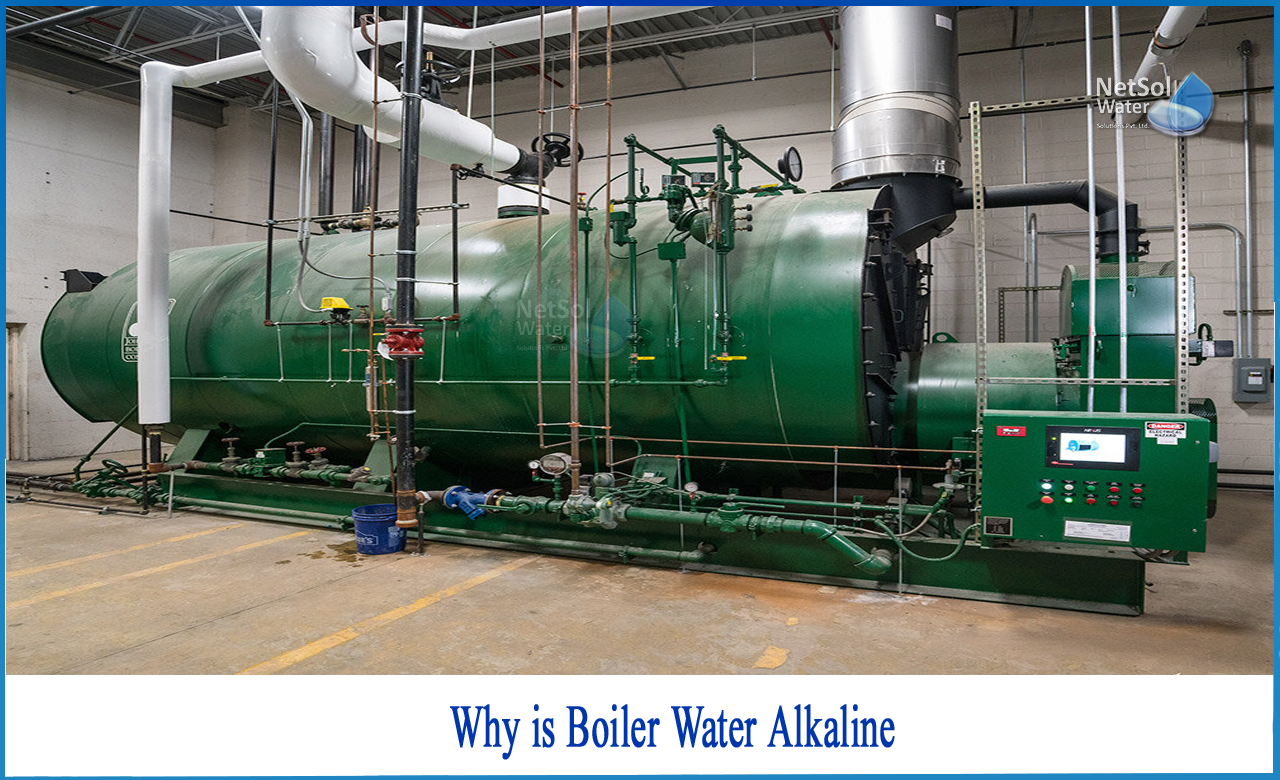Why is Boiler Water Alkaline?
The right pH measurement is critical in water treatment.
pH levels that are too high or too low can cause scaling and corrosion in boilers and steam turbines, as well as system failures, downtime, and the costly replacement of equipment.
The use of a general-purpose pH instrument is straightforward for many low-pressure boilers, but unique challenges arise for high-pressure boilers employing high-purity, low-conductivity water, such as those used in power applications where boilers and turbines require ultrapure alkaline water. These challenges can add costs, compromise accuracy, and jeopardize effective system operations. When deciding whether or not to employ pH devices in high-purity water, users must be aware of these obstacles.
Alkaline nature of boiler water
Controlling corrosion by maintaining the boiler water slightly alkaline, between 7 and 9 on the pH scale, is an essential part of boiler feedwater treatment.
An oxide layer forms on the boiler tube surfaces at an alkaline pH, protecting the base metal from additional corrosion and allowing breaches in the film to mend quickly.The pH is controlled by feeding sodium hydroxide and sodium phosphate salts in precisely measured amounts. Overfeeding chemicals, which is prevalent in most water treatment plants, may do just as much harm as underfeeding, therefore pH monitoring is a crucial aspect of the boiler chemical management programme.
Choosing a pH sensor for boiler water monitoring has traditionally been based mostly on the conductivity of the boiler water. In a low-pressure industrial boilers, conductivity can range from 7,000 microsiemens per centimeter (S/cm) to under 10 S/cm in a high-pressure steam power plant boiler. In a high-pressure boiler, a pH sensor that works properly in a low-pressure boiler usually fails.
It's rather simple to select a sensor for measuring the pH of high-conductivity boiler water. The use of a general-purpose pH sensor is suitable as long as the conductivity is larger than 50 S/cm at 25®C and the suspended particles content is minimal.
Conclusion
The pH of natural water is typically between 6.5 and 7.5. Maintaining a pH of 8.5 in boiler water is a frequent guideline.Water that is acidic is corrosive. Scaling is more likely in alkaline water.The bicarbonate (HCO3), carbonate (CO3), and hydroxyl (OH) ions in water are measured by alkalinity. The pH and alkalinity scales are neither interchangeable nor proportionate. Alkalinity is measured in parts per million and pH is measured on the Scale (ppm). For boilers running at less than 300 psi, an alkalinity rating of 140–700 ppm is usually recommended.
If you are curious about more information on boiler water treatment, then you can have an expert solution upon contacting Netsol Water, a leading manufacturer of Industrial and Commercial Water Treatment Plants and Wastewater Treatment Plants, among other services. Our treatment systems are very effective at removing all types of chemical, physical, and biological pollutants.
Netsol Water is Greater Noida-based leading water & wastewater treatment plant manufacturer. We are industry's most demanding company based on client review and work quality. We are known as best commercial RO plant manufacturers, industrial RO plant manufacturer, sewage treatment plant manufacturer, Water Softener Plant Manufacturers and effluent treatment plant manufacturers. Apart from this 24x7 customer support is our USP. Call on +91-9650608473, or write us at enquiry@netsolwater.com for any support, inquiry or product-purchase related query.



